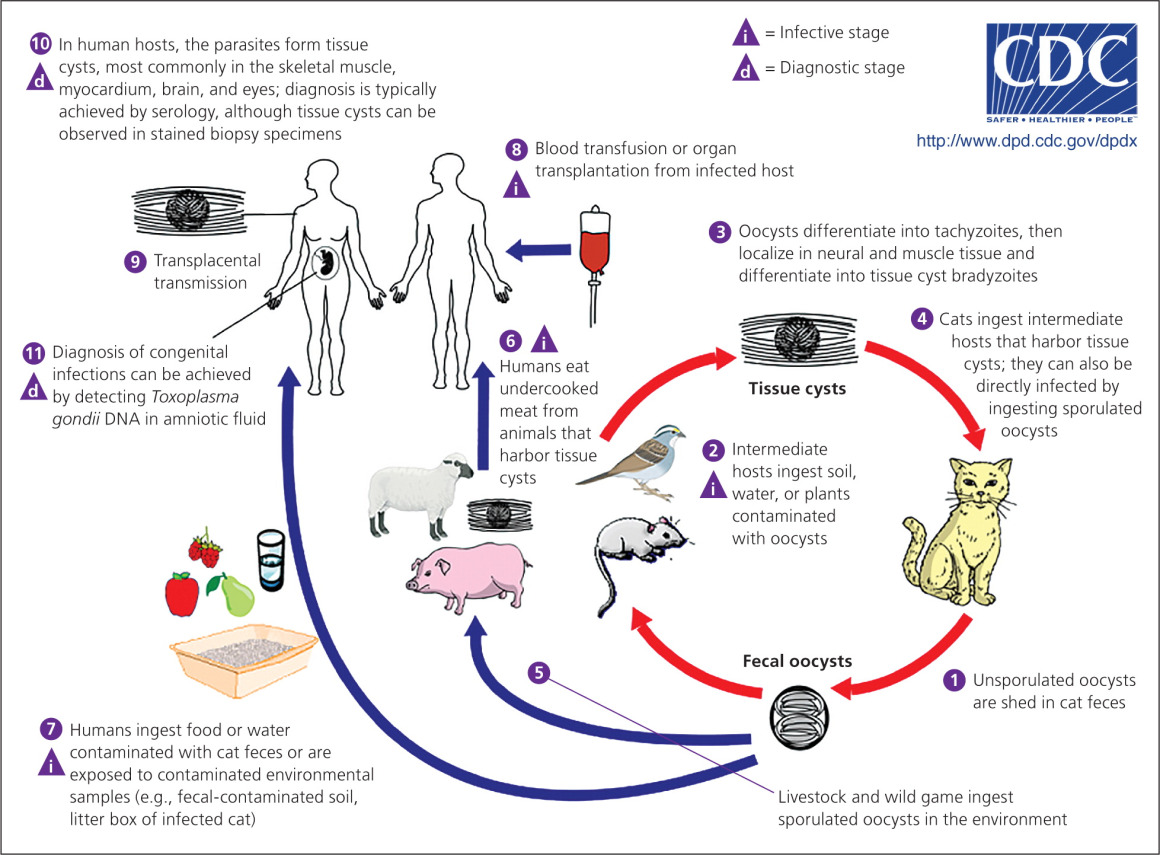Toxoplasma gondii, the Mind-Altering Protozoan.
Oh, you might have it, too, and there's nothing you can do about it.
You don't have to panic, though. Although it is estimated that about 30% of the
world's population are infected by Toxoplasma gondii, toxoplasmosis, the serious illness
which it causes and which can be fatal, only occurs rarely.
The illness may occur in infected infants, pregnant women, HIV/AIDS patients and other people with immunity disorders.
Our four-legged feline friends are the only organism T. gondii can reproduce in, and the parasite
knows how to make its way into them.
What do cats eat? Mice and birds, right? More common in rodents than other prey, T. gondii
is a twisted killer. It causes chemical changes inside them, and in turn, its intermediate
hosts do not sense fear when they smell cats and their response time is increased, so even
though cats may be happy with their easy hunt, they do not know that their victims carry a
horrible surprise.
And when I mention intermediate hosts, which stands for hosts that the parasite cannot
reproduce in, I mean almost any warm-blooded animal, including you.
It has been shown, and in great detail by prof. Jaroslav Flégr, that T. gondii causes
changes in humans too. Infected people are usually asymptomatic, meaning they do not
show any signs of infection (except for congenital infections), but this asymptomatic stage actually just seems to be
asymptomatic. The parasite has been linked to behavioural and personality changes, and
in 2017 it was proposed that there's a link between the infection with the protozoan
parasite and the development of schizophrenia.
Perhaps a more common problem that the parasite causes is the increase of response time.
An infected person has slower reactions and an observational study concluded that there
might be a 2.65 times greater chance for traffic accidents when the driver is infected.
What the parasite causes in people with weaker immunity is, however, much worse. Seizures,
coordination problems, in much rarer cases encephalitis, eye problems and skin lesions.
Remember to wash and cook your food properly, and clean your hands thoroughly after being
in risk of getting into contact with cat feces, which are the main source of infection.
Treatment for most adults is not needed, but more vulnerable people have several choices
for treatment.
